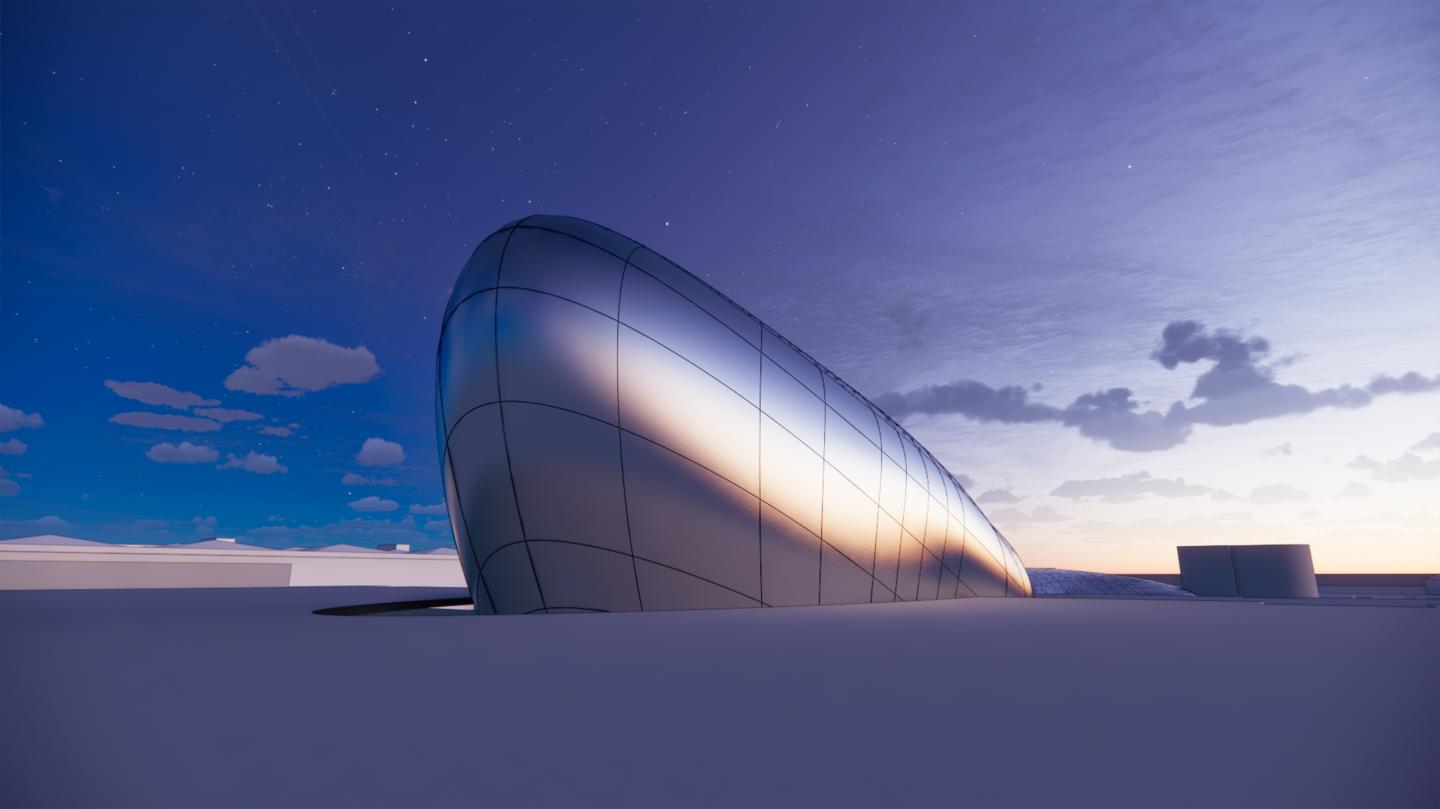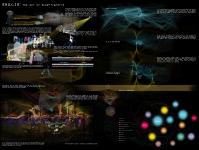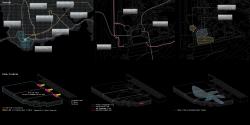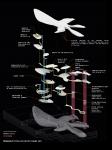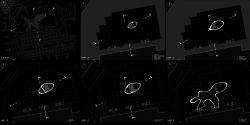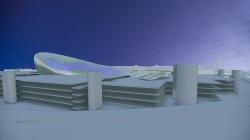First of all, to start with the meaning of the word, Exulis means traveller in Latin. It also means exile in some uses as a connotation in the context of breaking away from the place I will talk about throughout the course. Along this path, I will talk about this state of being a wanderer, access to knowledge, knowledge of the place, and the superimposition of this knowledge with the reality of data. As we know, humanity's occupation of "terra incognita", unknown lands, goes back a long time. While these exploratory travels, which started with El Idrisi in the 1000s, turned into data in the clearest form with Evliya Çelebi in the 16th century, flânerie, which was the last point it would evolve, has no such concerns. Now, we can say that flânerie, which has turned into a rediscovery of the "unknown" in the city, is "the eyes running through thousands of data while the body is slowly being thrown", as defined by Gros. This change changes again with the demilitarization of the aircraft, if not with its invention. It also brings flânerie to a new reality. As a result, the spaces are now almost adjacent, and the production of knowledge and access to knowledge are also collectivized. With the inclusion of the internet in life following television, this discovery, which became displaced with Instant Messenger, creates the electroflâneur. While people will now perform the gaze only from one screen, they will interact with another viewer for the first time. The post-flâneur, which is the current state of this movement, is now in a position to monitor the space with a filter, a tool other than the eye. According to the research of this flâneur Görsev Argın, although it is more successful than ever before in collecting data, it gradually loses its belonging to the place and becomes out of place. The next step that motion is taking us slowly is augmented reality. There are no workplaces and places that we know anymore. This traveling community, which is independent of the place and the place of production, or the community where everyone can become a traveller; the end point where information, data and usage will reach. However, in the face of these unconscious camera flâneurs, who do not take any action other than consuming the data they encounter, there is now a subjectivized conscious interaction in the field of data. In the stream of consciousness, the fusion of meta and real knowledge is driven by dislocation. Parallel to this evolution, airports, on the other hand, have been the biggest catalyst from the past to the present in the transfer of data of self, person and place with its globalizing effect from the moment it emerged. At the point where it has developed, airports, which are frequented by the traveling community, have the potential to become the focal point of interconnectivity and transmission. Atatürk Airport, on the other hand, can be considered as a data collector, both around the events related to it and as the place of the flow of information to these events. Historically, Atatürk Airport, which was the beginning of civil aviation in Turkey and the beginning of Turkey's opening to the world and to information, has the potential to be the focal point of the movement with its current idle state as a witness to the evolution of flânerie until today. With the importance gained by terrestrially with today's developments, the face of airports like Atatürk Airport is changing. As airports turn into data and flow nodes that will form Aerotropolises within cities, as I have just mentioned, this exploratory flânerie has the potential to reach and produce information. In this progression, with the transition to augmented reality, flânerie or superflânerie in its new form emerges as a movement that creates a dialogue of interaction, more than Ponty-Lacan's gaze and gaze, with the knowledge of step, place, spatiality. Superflaneurie, which re-establishes the relationship with the place with the globality one after the other, is in the action of the conscious rediscovery of the existent, as a movement in which the interaction with knowledge is filtered out. Exulis, on the other hand, is the meta-physical reality of these conscious explorers, the data of these encounters; Again, it represents its superimposition on Atatürk Airport, which stands out with its parallel potential. So, what will this filtered data-information do? While regaining the lost bond with data and information, Exulis aims to confront the uncovered problems of the city, to create a gateway to the field of data and to experience it. In addition, while being the catalyst for public awareness and conscious data discovery, it creates the starting place of a movement cantered on airports. The setup that will allocate this is with Porta Indicium, the data gateway that follows the Atlas data forum. Nubes, an image of a cloud And the range of spaces within it, with observation point With Transcendetalizer, where the superhumanity of the data is analysed It reaches with Orbis, the whole through which the earthly, physical relationship and data are channelled. As the reflection of the forum in this reality, Atlas presents a public interaction with data through interactive exhibitions, while, as the epitome of its name, it establishes the main relationship of the building with the ground and keeps it alive. Porta Indicium, on the other hand, takes the person from this forum and constantly analyses the dynamic problems of the city.
2022
Location: Atatürk Airport/Istanbul
Built-up area: 12000 m2
Type: Public, research
Height: 25.60m
Designer: Bahadır Altın
Instructors: Assoc. Prof. Dr. Ebru Yılmaz, Assoc. Dr. Ülkü İnceköse
